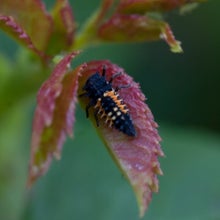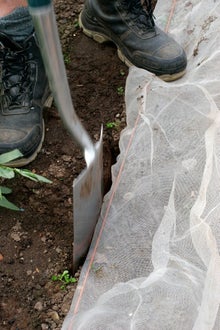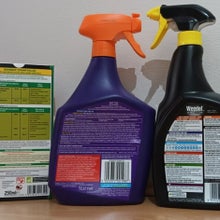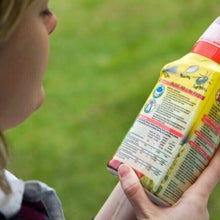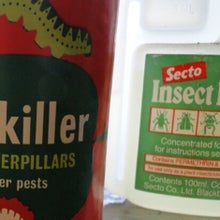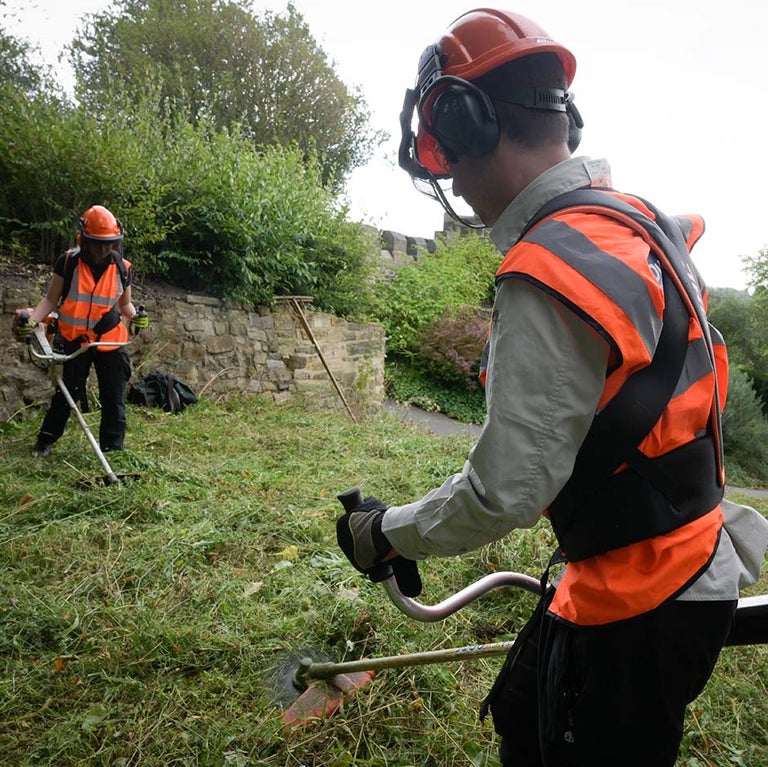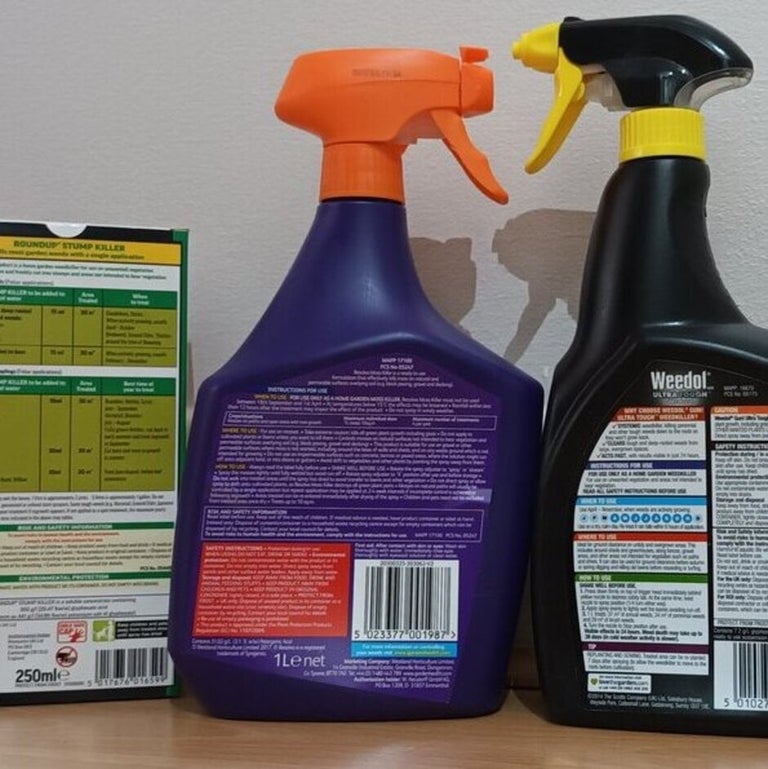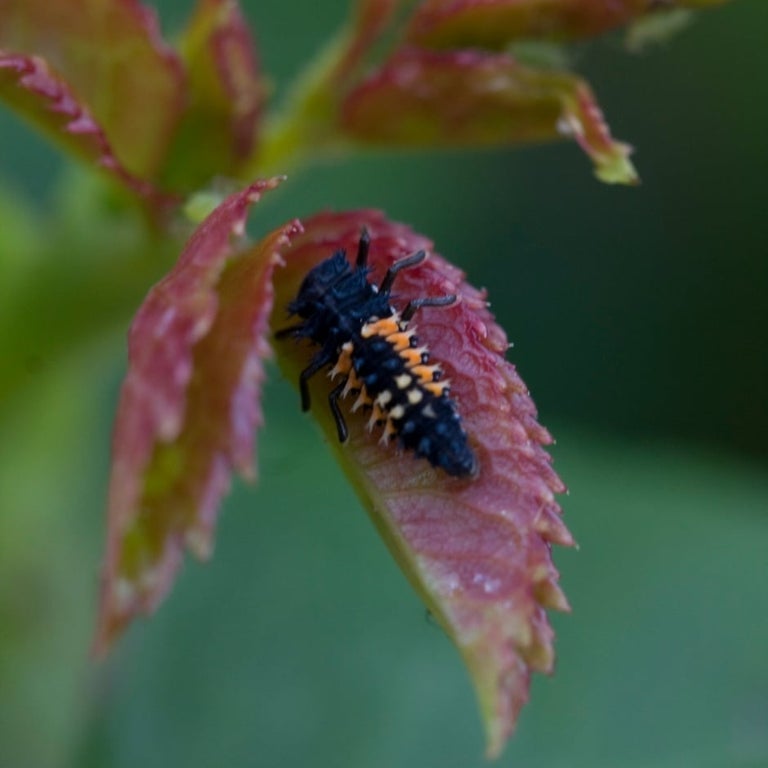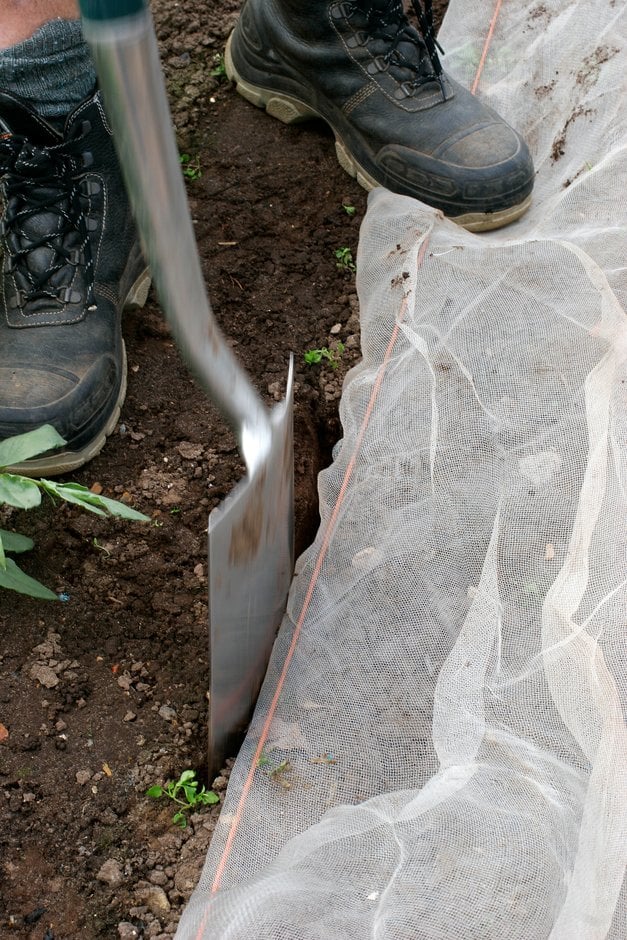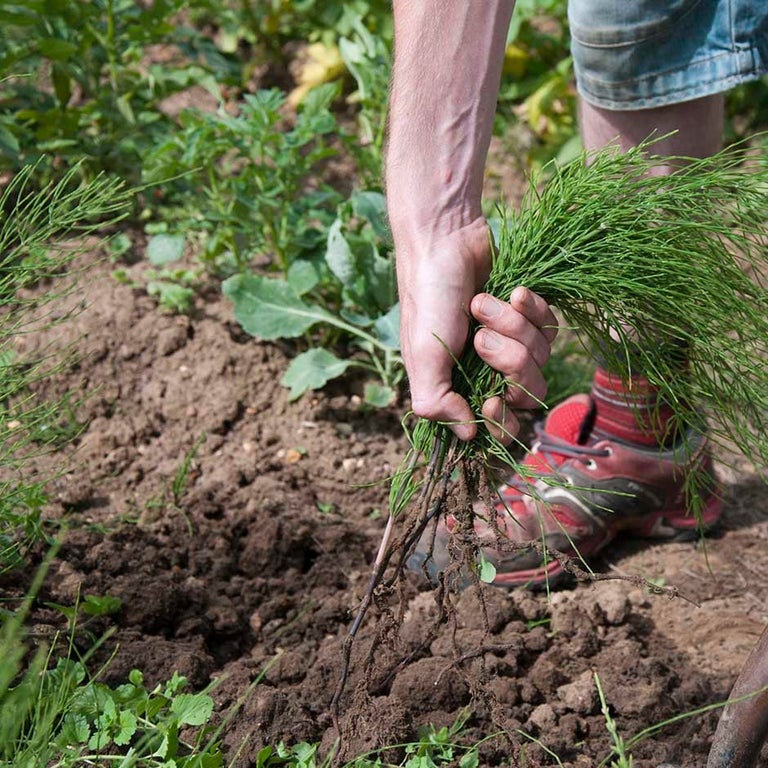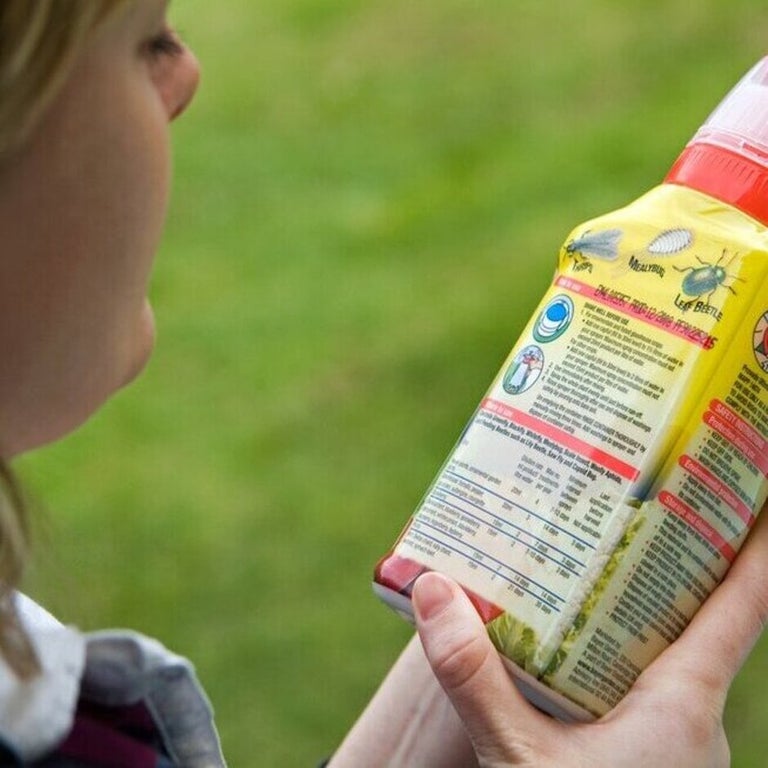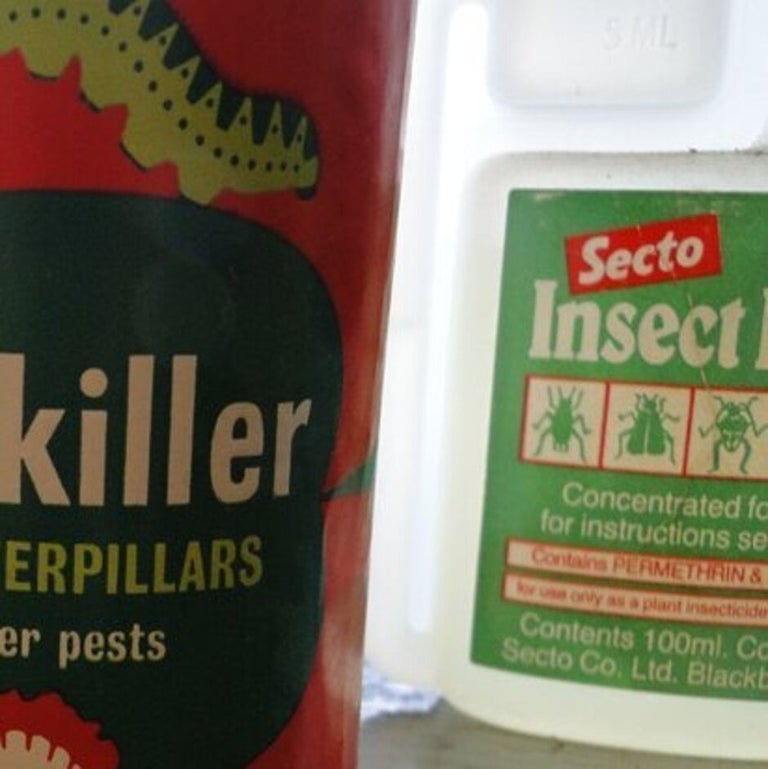
Quick facts
Pesticides are chemicals used in gardens and include insecticides, fungicides, herbicides and molluscicides
Chemicals should be stored in their original containers, out of reach of children, in a cool, dry, dark place
Incorrect disposal of undiluted pesticides causes environmental damage
Check instructions on the packaging for how to dispose of and recycle pesticide containers correctly
Non-chemical methods to protect plants or eradicate weeds should be your first line of control and negate the need for pesticides
Using chemicals in gardens
The RHS believes that avoiding pests, diseases and weeds by good practice in cultivation methods, selection, and encouraging or introducing natural enemies, should be the first line of control. If chemical controls are used, they should be used only in a minimal and highly targeted manner. See our guides to help you garden successfully without chemicals:
are substances designed to kill or control the growth and behaviour of living organisms and therefore it is crucial they are used, stored and disposed of correctly to minimise risks to humans, wildlife and the environment. For more information, see our helpful guides:
Fertilisers
Chemical fertilisers are not subject to the same regulations as pesticides, but incorrect disposal of fertilisers can cause serious harm to the environment. If you need to dispose of fertilisers, check the website of your local authority’s waste disposal department or contact them directly.
How should I store chemicals?
If you choose to use pesticides, do not purchase large amounts that will take many years to use up. If only a few plants require treatment, a ready-to-use formulation is more suitable than concentrate. If you need to store , following the steps below will help you do so safely:
- Always keep chemicals in their original containers with the tops firmly closed. It is illegal to transfer pesticides into other storage containers. Product labels display vital information regarding active ingredients, approved uses, registration (MAPP) numbers, methods of application and dosage rates. This information is also crucial to the emergency services should any accidents occur.
- Store chemicals in a cool, dry, frost-free place out of direct sunlight. If kept in sunny positions liquids may vaporise and product labels can quickly fade.
- Keep chemicals out of reach of children. Preferably, store pesticides in a locked container so children, vulnerable adults, pets and wildlife can’t access them.
- Store powders, granules and dusts above liquids, as this eliminates the chance of liquid leaking onto soluble materials, resulting in possible chemical reactions.
- Don’t store solutions you have made up from concentrates. Concentrates and ready-to-use sprays will generally store for two years or more if kept in cool, dark conditions. However, when gardeners make up a solution by diluting a concentrate, this should not be stored, as it will quickly lose effectiveness and will not be in the original container.
- Store pesticides separately from fertilisers and other garden materials to avoid inadvertent contamination.
- Check the label on any products you have stored to find the active ingredient and make sure they are still approved for use. Refer to the Health and Safety Executive website and the RHS guide to withdrawn chemicals for information on approved pesticides.
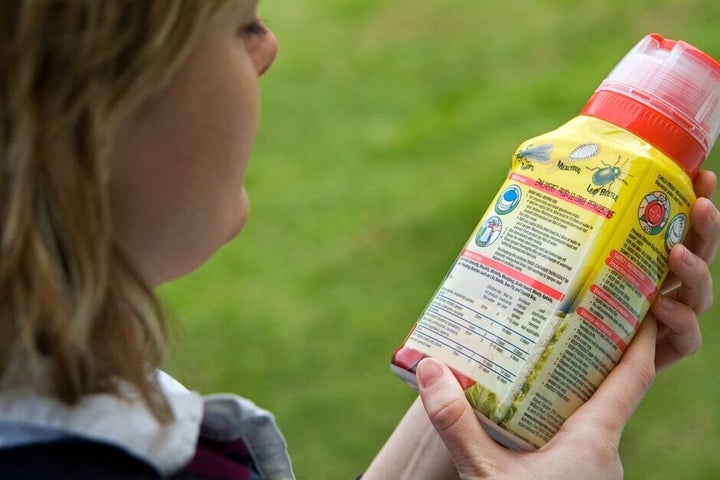
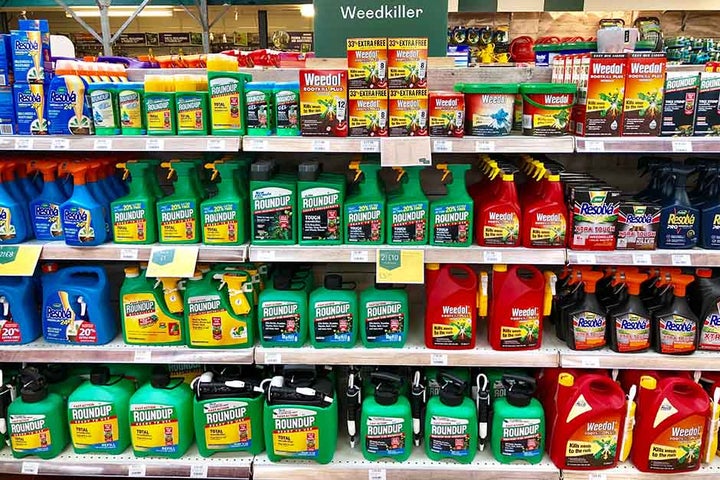
How should I dispose of chemicals?
The need to dispose of garden chemicals can be greatly reduced if you only buy small amounts. Buying a ready-to-use formulation, rather than a concentrate, avoids the risk of making up too much solution that you then need to dispose of. If making up a solution from concentrate, carefully calculate how much you need, so you don’t end up with excess that you need to get rid of. If you need to dispose of garden chemicals, follow these guidelines:
Disposing of excess solution after spraying
- Spray excess solution on areas or plants listed on the label if you have overestimated how much solution was needed when diluting a concentrate and ended up with a small amount left over. Excess solution should never be poured down the drain or onto bare soil, as this causes groundwater pollution. It is better to make up less solution than too much, as it is far easier to mix up more than it is to find additional areas or plants to apply excess spray to.
- After spraying, rinse your sprayer with three washes of a small amount of water, and spray this diluted solution onto areas or plants listed on the label.
Disposing of empty containers
- Read the label on a product for information on how the container/packaging should be disposed of.
- Recycle empty plastic containers through kerbside waste collection.
Disposing of surplus and withdrawn chemicals
- Locate your nearest local authority chemical disposal facility by using the Common Sense Gardening Group website.
- Contact your local authority’s waste disposal department or check their website for further information about disposing of surplus or withdrawn pesticides, or if you come across old or unlabelled containers (in an old shed in a newly purchased property, for example).
- Ensure that containers are securely sealed when transporting pesticides to a waste disposal facility. Do not mix different chemicals.
- Never dispose of pesticides down drains or in watercourses. Flushing pesticides down toilets or drains, applying weedkillers to hard surfaces where run off might enter drains, and pouring pesticides onto bare soil, can pollute water and harm wildlife.
